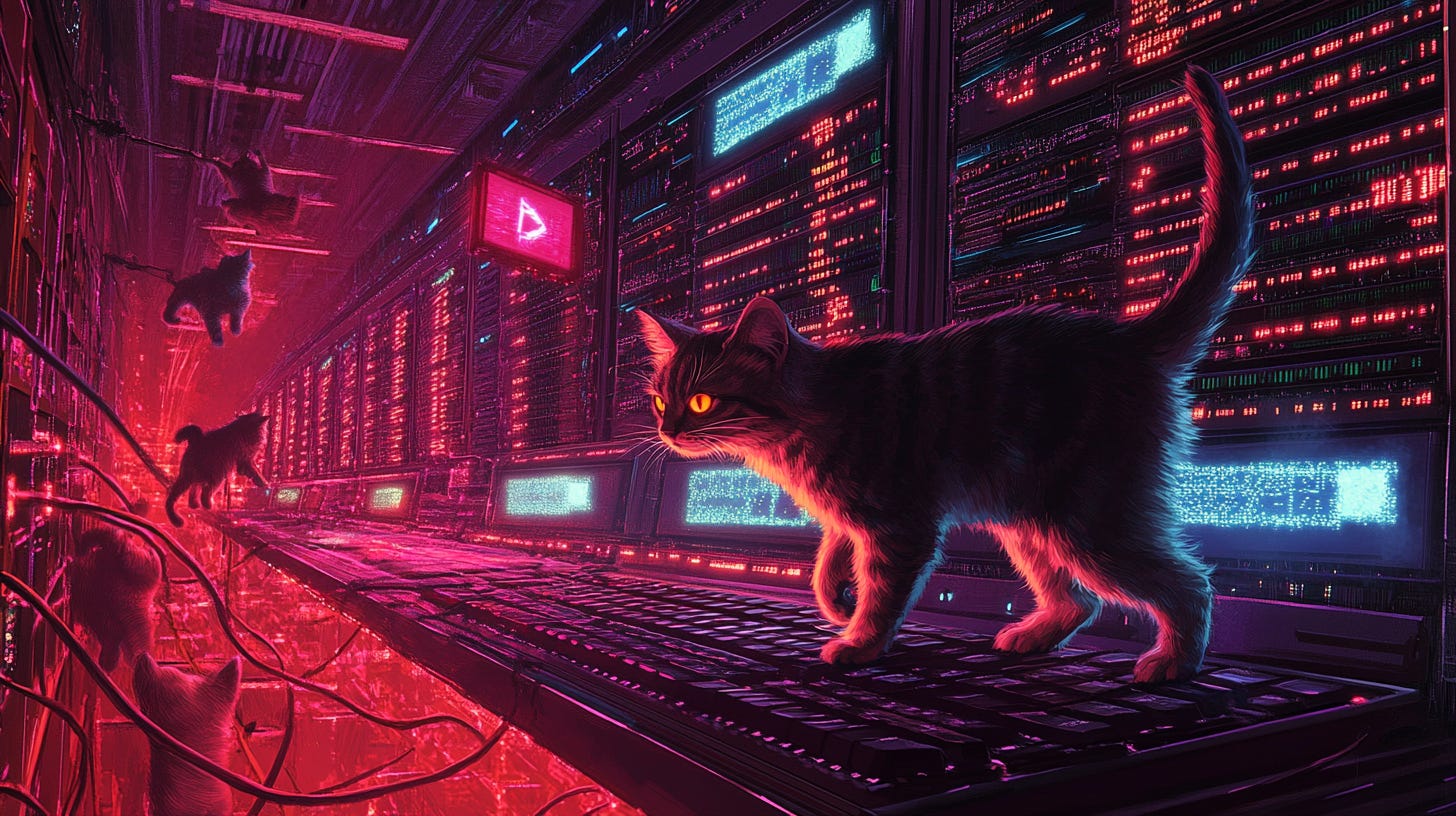The Social Stack: Bolos as a New Layer of Human Organization
Adventures in Debugging the Social Contract
Have You Tried Turning Society Off and On Again?
Humanity teeters on the edge of multiple precipices - ecological collapse looms as climate change accelerates, social fabric frays under the weight of historic inequality, and a deep alienation hollows out human connection and meaning. These overlapping crises demand fundamental transformation of how we live and organize ourselves. Yet when we look for solutions, we find ourselves trapped in a paralyzing paradox: the very systems causing these problems - our economic structures, governance models, and social patterns - seem too deeply entrenched to change. The machinery of modern society appears both catastrophically broken and utterly irreplaceable. When Margaret Thatcher declared "There Is No Alternative" (TINA), she wasn't just making a political argument - she was naming the invisible prison of imagination that keeps us locked in failing systems even as they drive us toward disaster.
This predicament mirrors the challenge described in Otto Neurath's famous metaphor of rebuilding a ship at sea. Picture yourself aboard a vessel that desperately needs reconstruction - rotting planks, failing systems, dangerous leaks. Yet you cannot simply leap into the water and build a new ship from scratch. You must somehow keep the vessel afloat while replacing it piece by piece, maintaining enough of the old structure to stay above water even as you work to transform it into something entirely new. This is our situation with society - we need radical change, but we cannot simply dismantle existing systems without causing immense human suffering.
But what if there was a way to begin this transformation without requiring an all-or-nothing approach? This is where the concept of bolos enters our story. First introduced by the visionary author P.M. in their 1983 work "bolo'bolo," these intentional communities of 300-500 people offer a revolutionary yet practical path forward. To understand their transformative potential, we need to examine society through a powerful new lens: the metaphor of a technological stack.
Society.exe: A User's Manual
Imagine society as a vast computer system, built in layers like any complex technology. At its foundation lies the machine code of human coordination - language and money - the basic protocols that enable all higher functions. Above this runs the assembly language of fundamental social protocols: property rights, kinship systems, and other deep patterns of human organization. The next layer up contains what we might call the operating system: our legal frameworks and institutions that regulate and manage social processes.
Bolos would operate at a crucial position in this stack - the distributed computing layer. Like software containers or virtual machines, they would encapsulate social processes into discrete, manageable units while still interfacing with underlying systems. Bolos can experiment with radical new forms of social organization without requiring a complete overhaul of society's base protocols. They can run alternative "programs" while still communicating with the broader world when needed.
Size Matters: The Goldilocks Zone of Social Organization
The genius of bolos lies in their scale. At 300-500 people, they hit a sweet spot that enables profound social innovations. Large enough to achieve economies of scale in meeting basic needs, yet small enough to maintain face-to-face relationships and genuine democratic participation. Within each bolo, members can develop new systems for everything from resource allocation to conflict resolution, creating living laboratories for sustainable, human-scale community.
This elegant solution cuts through our original paradox. Rather than having to transform all of society simultaneously - an impossible task - we can build these social containers within the existing system. Different bolos can experiment with different approaches, learning from each other's successes and failures. Like a distributed network of social experiments, they offer us a way to develop and test new patterns of community organization while maintaining essential functions.
Downloading New Social Software (No Credit Card Required)
The tech stack metaphor illuminates why this approach could succeed where others have failed. Just as new applications can be developed and run without changing a computer's underlying operating system, bolos can experiment with radical social innovations while still interfacing with existing societal infrastructure. They provide what programmers call "process isolation" - different bolos can run different social "programs" without interfering with each other - while federation protocols enable coordination between communities.
This vision offers more than hope - it offers a practical path forward through our cascading crises. We don't need to wait for perfect conditions or solve every problem before beginning. We can start building these experimental communities now, using existing infrastructure while developing new patterns of living and being together. The transformation we desperately need can begin today, one bolo at a time.
If this vision of practical social transformation speaks to you, I invite you to join in making it reality. As someone deeply engaged in developing and promoting the bolo concept, I welcome dialogue about implementing these ideas in practice. Connect with me, the Boloist — Pony Isaacsohn — at Pony Dot Isaacsohn at google’s email service to start building these new social containers for our collective future.






